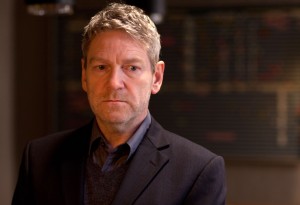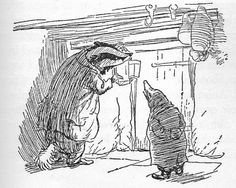Donald Trump is leading in the Republican nominations. Hundreds of thousands of people in the Middle East and Africa are fleeing for their lives. North Korea, Zimbabwe and Russia are run as personal fiefdoms by fear-driven despots. A confederation of has-beens and the politically greedy in Britain are making up any old rubbish to persuade us to take our toys home and not play with the big boys and girls in Europe any more. And we’ve had two sunny days so far this year. It’s all looking the teeniest bit gloomy. Books, please.
To remind myself that the United States of America is largely peopled with lovely, intelligent men and women who will not be choosing to be governed by a fascist clown, a small part of this week’s NorthernReader bookshelf is dedicated to a celebration of the spirit of shining optimism that is the defining characteristic of all that is best about America. Gordon Wood’s The Radicalism of the American Revolution is widely regarded as the if-I-can-only-have-one choice, and who am I to disagree? Skipping forward a couple of centuries, anyone who said ‘the only thing we have to fear is fear itself’ earns a place among the angels, so let’s hear it for Franklin Delano Roosevelt. In his 1933 inaugural speech, Roosevelt went on to call fear ‘nameless, unreasoning, unjustified terror which paralyzes needed efforts to convert retreat into advance.’ Absolutely right, I would say, and just about nails why lesser politicians find whipping up fear such a useful tool to get away with the flagrant abuse of democracy. Be afraid, be very afraid, our beloved leaders tell us; and look into my eyes, for heaven’s sake don’t use your common sense or your own judgment. Doris Kearns Goodwin’s No Ordinary Time reminds us that cometh the hour, cometh not only the man but in FDR’s case the woman too, with a perceptive study of how much Eleanor Roosevelt brought to the presidency as well as the marriage. For a taste of the positive impact of the New Deal, let us have Betty MacDonalds’ Anybody Can Do Anything, a witty first-hand account of life during the Great Depression and the recovery. And to remind ourselves that the enlightenment view of history does eventually prevail – that slavery, racism and hatred can be overcome – how about Taylor Branch’s monumental trilogy on the Martin Luther King years, starting with Parting the Waters?
 Cheery and uplifting books that look at the Middle East and tell us that ‘this too will pass’ might be a little trickier. That particular bag of rats is too close, too much of the present, for us to be able to look forward with confidence. The best that books can do for us is to remind us of the resilience of hope. Rory Stewart’s The Prince of the Marshes, his vivid and sometimes harrowing tale of his time in Iraq, does not have a fairy-tale ending, I am sorry to say; but read it together with Wilfred Thesiger’s The Marsh Arabs (or indeed anything by the piercingly good Thesiger) to at least deny Saddam Hussein the victory of wiping this entire culture off the face of the earth. An Improbable Friendship should win a prize if only for coming up with a title of such consummate understatement: written by Anthony David, it tells of the long and warm friendship between Ruth Dayan and Raymonda Tawil. Yes, that’s right, the wife of Israel’s Moshe Dayan and Yasser Arafat’s mother-in-law. It is impossible to read about these two remarkable women without, just for a hope-filled moment, imagining a world not governed by testosterone. Christine de Pizan’s The Book of the City of Ladies, anyone? So very much more optimistic that Caryl Churchill’s Top Girls, which, coming from the Angry Feminist (or Jolly Cross Feminist) school of the 1980s, now feels a bit wearying and dated. It has become a staple of school and university reading lists, and I do rather wish it could at least be balanced by a more positive feminist outlook. Suggestions please.
Cheery and uplifting books that look at the Middle East and tell us that ‘this too will pass’ might be a little trickier. That particular bag of rats is too close, too much of the present, for us to be able to look forward with confidence. The best that books can do for us is to remind us of the resilience of hope. Rory Stewart’s The Prince of the Marshes, his vivid and sometimes harrowing tale of his time in Iraq, does not have a fairy-tale ending, I am sorry to say; but read it together with Wilfred Thesiger’s The Marsh Arabs (or indeed anything by the piercingly good Thesiger) to at least deny Saddam Hussein the victory of wiping this entire culture off the face of the earth. An Improbable Friendship should win a prize if only for coming up with a title of such consummate understatement: written by Anthony David, it tells of the long and warm friendship between Ruth Dayan and Raymonda Tawil. Yes, that’s right, the wife of Israel’s Moshe Dayan and Yasser Arafat’s mother-in-law. It is impossible to read about these two remarkable women without, just for a hope-filled moment, imagining a world not governed by testosterone. Christine de Pizan’s The Book of the City of Ladies, anyone? So very much more optimistic that Caryl Churchill’s Top Girls, which, coming from the Angry Feminist (or Jolly Cross Feminist) school of the 1980s, now feels a bit wearying and dated. It has become a staple of school and university reading lists, and I do rather wish it could at least be balanced by a more positive feminist outlook. Suggestions please.
As for the so-called ‘debate’ about whether the UK should remain as a member state of the European Union: well, an obvious candidate for our shelf this week is Antony Beevor’s The Second World War. But we can also cheer ourselves up with some simply gorgeous European fiction and rejoice that we are lucky enough to be part of the same loose conglomeration of free-thinking, enlightened, rational men and women as – well, fill in names-of-your-choice here. Mine would include Umberto Eco and Italo Calvino, Muriel Barbery and Michel Houellebecq (although having taught undergraduates who struggled to spell Keats and Hardy correctly I do wonder what they’ll make of him), Patrick Süsskind, Seamus Heaney, Maj Sjöwall and Per Wahloo …. And so, deliciously and endlessly, on. In fact, retiring into the borderless world of intelligent writing might be the only possible way of getting through the next yawningly long weeks of spiteful half-baked threats and warnings that seem to pass for debate these days. Yes, yes, I know, ‘twas ever thus, and the benches in the House of Commons are set two sword-lengths apart for good, if outdated, reason; although over-confidence in the concept of a standard sword-length, let alone a standard arm-length, might well have proved unfortunate should it ever have been put to the test, so that – hurrah! – we can take this pretty piece of Parliamentary legend as proof that good manners (or at least not actually attacking the chap opposite, however tempted) do prevail. And the idea that rational, considered and courteous debate outranks trying to kill your opponent is the most hopeful paradigm for our fractious and troubled world. A copy of Debrett’s New Guide to Etiquette and Modern Manners might be the thirteenth fairy’s best gift to us all.





